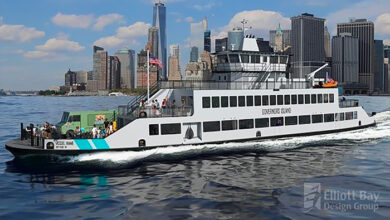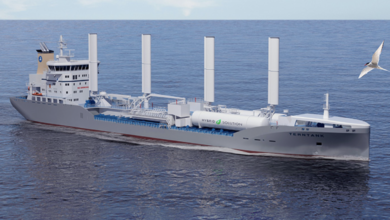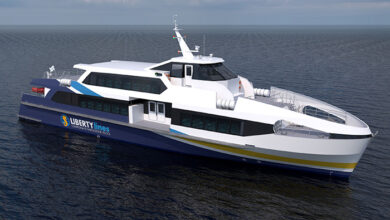Stena Line reports 11% reduction of carbon emissions
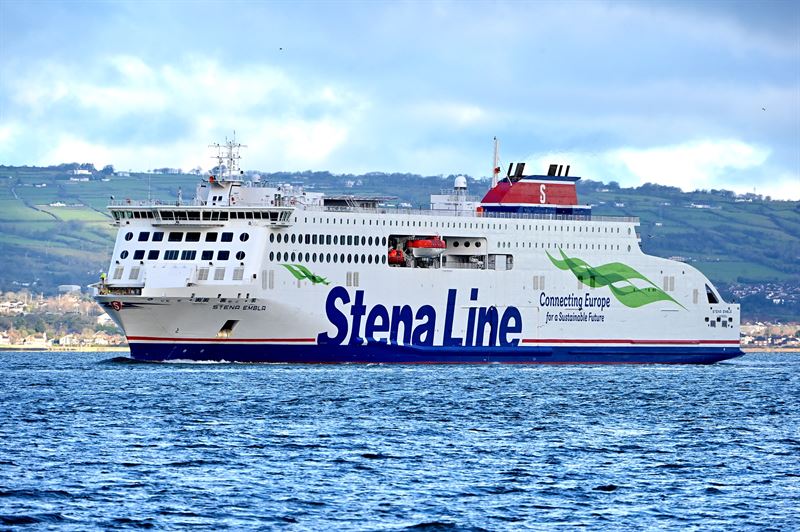
Stena Line has decreased the carbon emissions by 11% per tonne of cargo carried over each nautical mile, as well as achieving a reduction of 4% total ship emissions compared to pre-Covid operations. The main contributor to the result is the significantly higher utilisation and thus efficiency of the company´s fleet with cargo during the latest years. In its roadmap to a net-zero future, Stena Line has set up a target to reduce total CO2 emissions from its vessels by 30% by 2030.
During port operations and lay times, Stena Line now uses 100% renewable electricity. The energy is used for shore power at 20% of Stena Line´s terminals while berthing, to load battery packages on-board and for electric vehicles onshore that are used during port operations. Furthermore, initiatives like prior access to e-trucks to Stena Line´s ferries and pilot projects to use recycled methanol from the steel industry as shipping fuel lay the foundation for further step-wise greening of the operations of Stena Line.
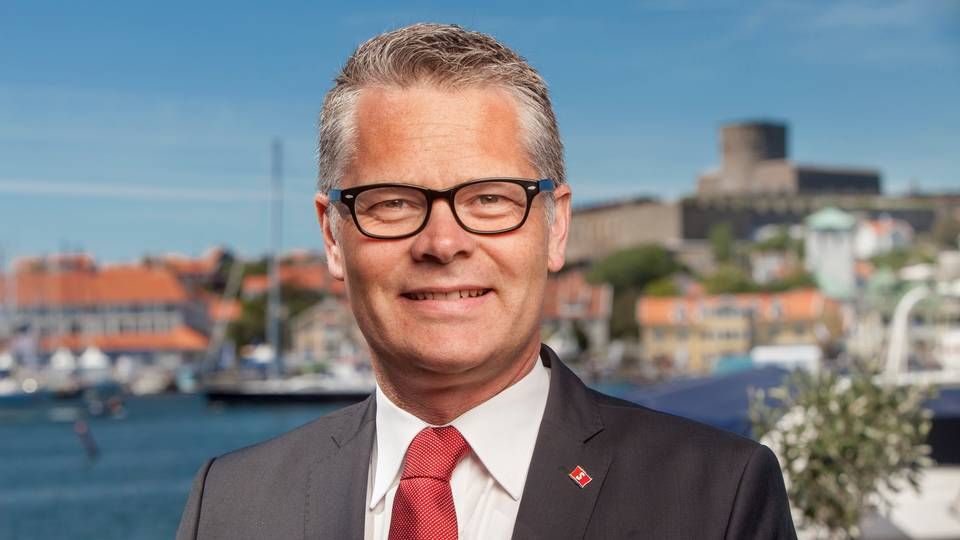
“At Stena Line we have a broad approach to sustainability, based on care – care for our customers, care for our resources and care for each other. As we strive to reduce energy consumption in all of our operations, I am proud that by introducing our new E-Flexer ferries in our route network, we made significant steps in further improving our overall efficiency during operations. But aside from technological and operational means, it is as important to work hard on structures and culture to become an even more sustainable company and contribute to our societal responsibilites”, says Niclas Mårtensson, CEO Stena Line.
Stena Line´s sustainability efforts are based on six dedicated Sustainable Development goals of the UN: Affordable and clean energy, responsible consumption and production, life below water, gender equality, reduced inequalities, good health and well-being.
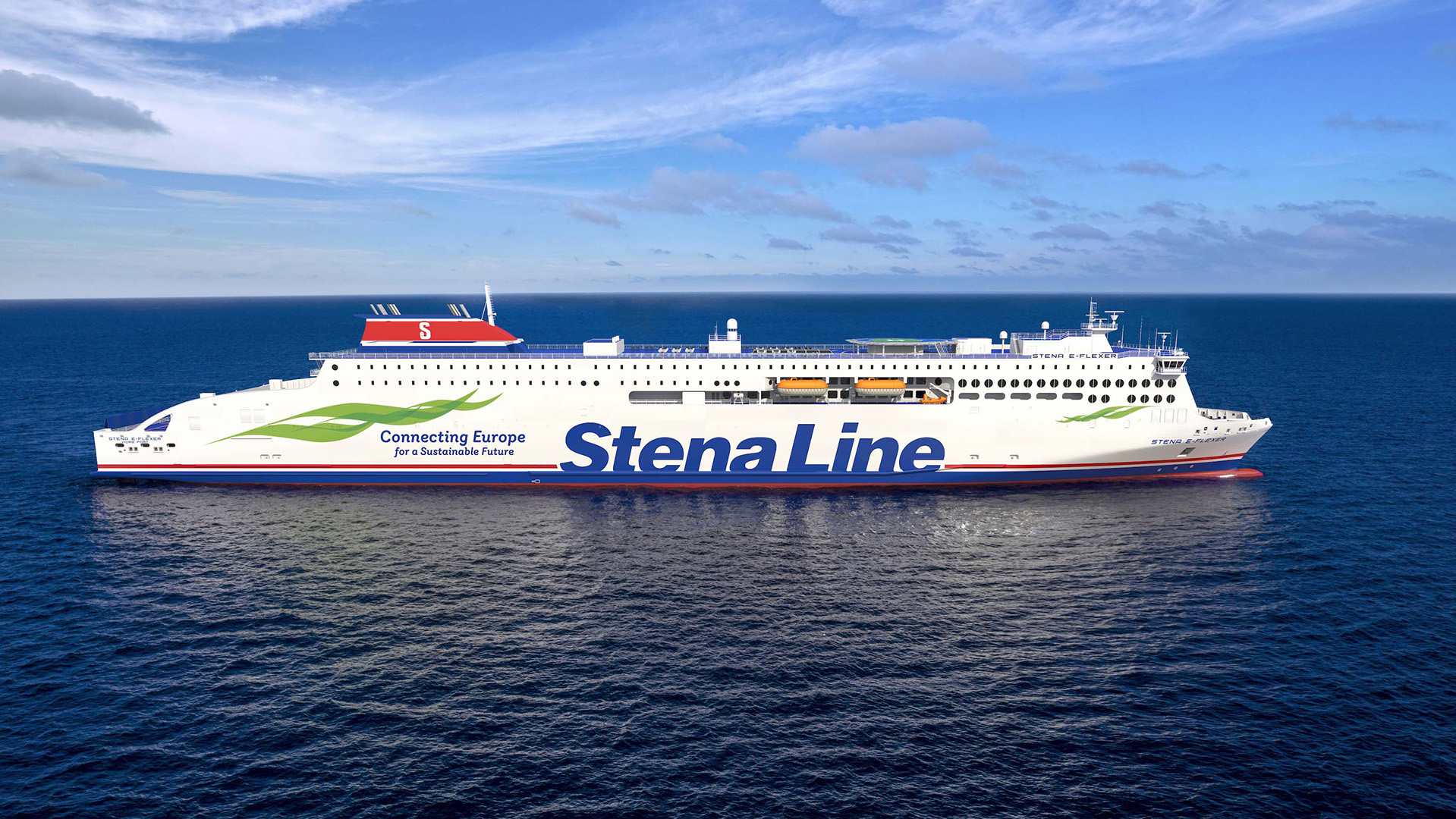
Further highlights in Stena Line´s sustainability efforts during 2021 include:
- A recycling rate of 42% of waste and a fallback of landfill waste to 2019 levels (24%), before plastic use increased for safety purposes
- 50% female representation in Stena Line’s Group Management Team
- Appointing the first female captain in Lynette Bryson, serving on Stena Aventurer on the key route Dublin-Holyhead
- Recruiting the first Diversity and Inclusion Lead in Salem Yohannes, helping Stena Line to speed up the journey to equality and launch of a diversity and inclusion campaign
- Introducing Maria Tornvall as new Head of Sustainability, committed to aligning Stena Line´s sustainable actions towards the ambitious targets
- Improving employer indicators such as engagement, team efficiency, leadership, organisation and social work environment above benchmark and achievement of a positive net promoter score of 9 – meaning employees would recommend Stena Line as an attractive workplace.
- Reduction of sick leave average from 5,2% to 4,2%

“Stena Line has been a trailblazer for the industry when it comes to implementing sustainable technology, operations and structures, and we are aiming to retain our position as a leading company in this area. It is important to show and tell what we as company and people working at Stena Line can do to make a difference, to inspire and to motivate. Yes, the future is challenging on various levels, but with a clear roadmap towards a net-zero future and an even better workplace, defined steps how to reach the targets, and not the least the dedication of all of us, there are a lot of reasons for optimism”, says Maria Tornvall, Head of Sustainability at Stena Line.



